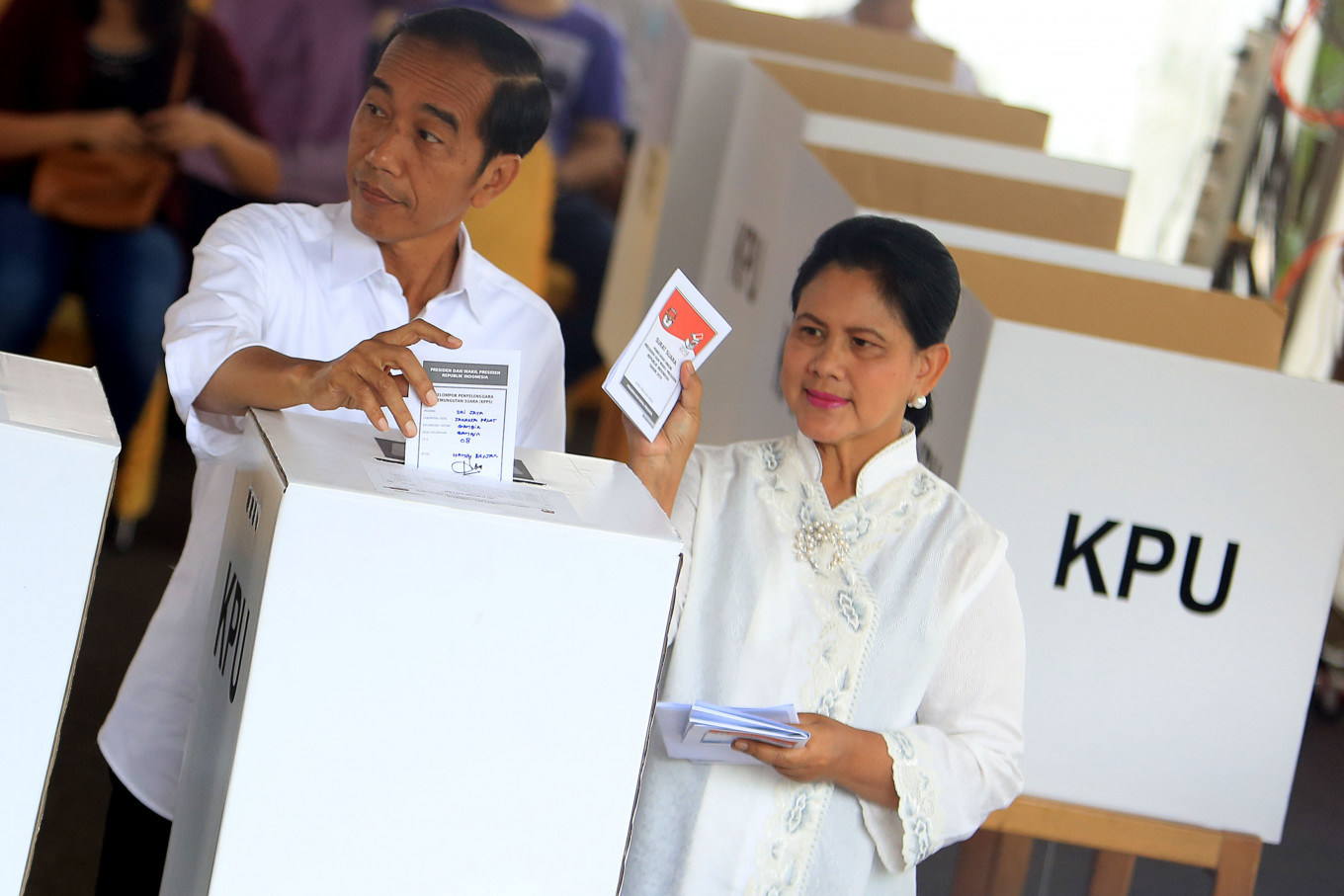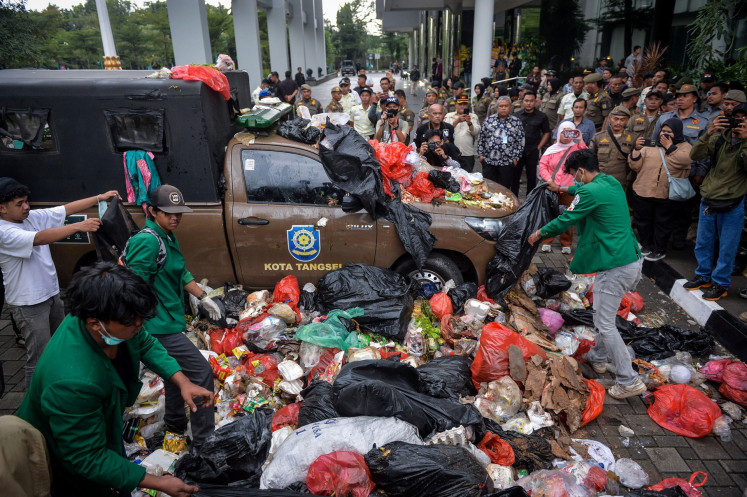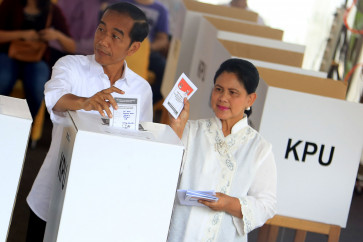Popular Reads
Top Results
Can't find what you're looking for?
View all search resultsPopular Reads
Top Results
Can't find what you're looking for?
View all search resultsWhat to expect after the polls
Looking at the quick and real counts that are still progressing, the composition of legislative seats for the next five years is becoming clear. There will be no new party working in Senayan.
Change text size
Gift Premium Articles
to Anyone
L
ooking at the quick and real counts that are still progressing, the composition of legislative seats for the next five years is becoming clear. There will be no new party working in Senayan. The Hanura Party is the only party within the government coalition that is unlikely to get any seats. The Indonesian Democratic Party of Struggle (PDI-P) will keep its power as the biggest party, while NasDem will enjoy a significant increase in votes.
However, the political dynamics in the legislature will be much different compared with 2014. When elected in 2014, President Joko “Jokowi” Widodo did not have a majority in the House of Representatives. It took him over a year to reconfigure the balance of power among political parties and gather support to confidently start making policy decisions.
Jokowi will most likely have a stronger grip on the House from the very start of his second term, thanks to his success in moving certain pivotal points among political actors beforehand. His coalition is likely to exceed 50 percent of the vote in the legislative election.
The Legislative Institutions Law (MD3 Law) combined with the soon-to-be-announced election result will provide his group large control over the seats of legislative speakers. With such strong support in the House, Jokowi has all the power he needs to further a progressive policy agenda.
In consolidating his power, Golkar’s political maneuvers over the past three years have been particularly significant to Jokowi’s strategy. After having won the second largest share of votes in the 2014 election (14.75 percent) for the then-Prabowo Subianto-Hatta Rajasa ticket, Golkar transitioned into becoming a pivotal player for Jokowi’s coalition.
While giving Jokowi additional power in the Cabinet, Golkar was also valuable in driving support for Jokowi in the 2019 election by leveraging its vast political network and campaign machine.
Following several corruption cases involving party leaders such as Setya Novanto and Idrus Marham, Golkar was surprisingly able to maintain its position as one of the top three parties.
Your Opinion Matters
Share your experiences, suggestions, and any issues you've encountered on The Jakarta Post. We're here to listen.
Thank you
Thank you for sharing your thoughts. We appreciate your feedback.


















